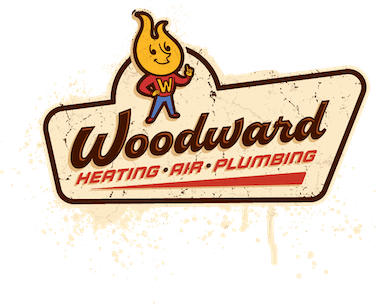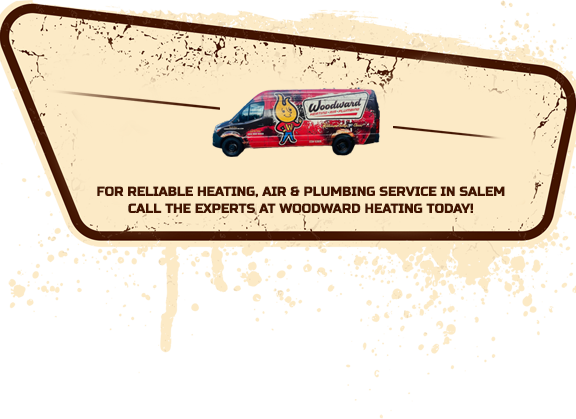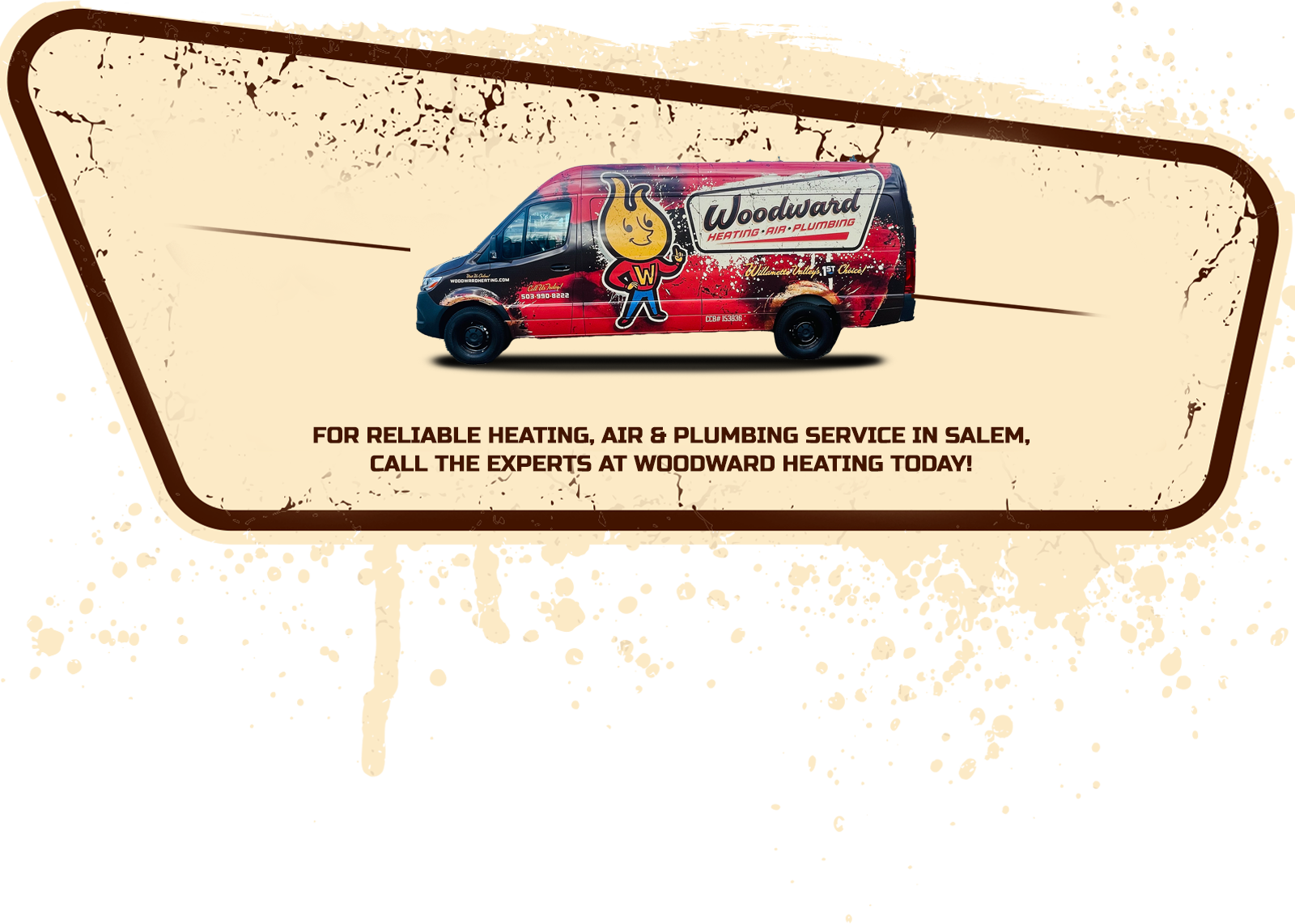
Purchasing a new HVAC system is a big decision. It’s a significant investment that will determine the comfort level in your home for the next 15+ years. However, many people have little experience with buying an HVAC system since it happens so infrequently. The experts at Woodward Heating Air Plumbing have a wealth of knowledge that can help homeowners navigate the buying process. The following are seven things to consider when purchasing a new HVAC system for your home in Salem, OR.
1. Your Home’s Heating and Cooling Needs
The first thing you must consider when purchasing a new HVAC system is how much heating and cooling your home requires. Choosing an HVAC system that’s the right size for your home can ensure your comfort for many years. Conversely, buying the incorrect size can cause a variety of problems.
An HVAC system that’s too small will struggle to maintain your home’s temperature, resulting in unnecessary extra wear and tear that could shorten the unit’s lifespan. If an HVAC system is too large, it will short cycle, lessening its useful life and creating uneven temperatures in your home.
To guarantee that you get a unit that’s the right size for your space, contact Woodward Heating Air Plumbing to assist you with choosing the ideal HVAC system. We’ll be able to help you sort through all the available HVAC unit options to pick one that corresponds to the size of your space while also meeting your specific needs, including your budget.
2. How Much Efficiency You Can Afford
Another factor to consider when you’re purchasing a new HVAC system is how much efficiency you can afford. This is important because it will affect your home’s energy consumption for the next 15 to 20 years or more. In general, it’s usually ideal to purchase the most efficient HVAC system your budget will allow.
Currently, the lowest Seasonal Energy Efficiency Ratio (SEER) rating is 13. However, there are AC systems readily available with SEER ratings of 20 or higher. What you choose could play a significant role in how much you’ll pay for cooling costs every year, so if you’re unsure which option is most suitable for your home, it’s better to ask a professional for guidance so you get the best one that meets your requirements.
For heating, the lowest current Annual Fuel Utilization Efficiency (AFUE) ratio is 80. That means it will waste 20% of the fuel it consumes. If you decide to choose a furnace that has an AFUE rating of 90 or more, your operating costs could fall significantly. However, your upfront costs will likely rise, so you’ll want to plan accordingly with your budget.
3. Choose a Reputable Brand
An HVAC system is a major investment, so it makes sense that you want your new system to last as long as possible. That begins with choosing an HVAC system from a brand with a reputation for quality and long-lasting, durable products. At Woodward Heating Air Plumbing, we carry the latest heating and cooling systems from brands like Trane and Mitsubishi. The recognizable brand names have long track records of making quality products, but they aren’t your only options.
Take your time doing research before settling on an HVAC system to buy for your Oregon home. Read genuine customer reviews that describe real-world experiences of how each unit worked for them, especially over a long period of time. Nowadays, there are many websites on which to obtain this information. Additionally, make sure you talk to an HVAC technician you trust to get their opinion about the system you’re thinking of buying.
4. Consider Maintenance Requirements
Since ongoing maintenance represents another part of an HVAC system’s operating costs, you’ll want to consider the upkeep needs of any unit you’re thinking about buying. For example, find out how many times an HVAC technician needs to service the unit every year to satisfy the terms of the system’s warranty.
You’ll also want to find out how often a technician will need to come in and change the air filters. Some systems may require filter changes as often as every three months, while others can hold up longer without needing a replacement. Choose a system with maintenance needs that you feel comfortable you can handle since that upkeep will influence the unit’s performance and lifespan.
5. Consider the Noise Level
HVAC systems will typically have a barely noticeable noise level. However, some units can be louder than others. If noise is a concern, look at systems with the lowest possible decibel (dB) level.
Keep in mind that the new system should enhance your home, not cause a disruption. The lower the decibel number is, the quieter the system will be. If you’re not sure where to start, a qualified HVAC technician can point you in the right direction, considering they have knowledge and first-hand experience with many types of systems.
6. Decide if Your Home Needs Zoned Heating and Cooling
Many homes have an HVAC system with a centrally-located thermostat that controls the temperature of each room and area. However, that could lead to inconsistent temperatures at various times throughout the year, where one room might be warmer or colder than another area. For example, your home’s second floor may be significantly warmer than the first floor in the summer.
An HVAC zoning system can prevent these issues. The process involves splitting your ductwork into more than one heating and cooling zone, each with its own thermostat, so you can customize each area to your preferred temperature. This option can be especially beneficial if the home has multiple residents that each have differing temperature preferences.
7. Choose a Reputable HVAC Installer
The person who installs your HVAC system is just as important as the system itself. You need to be able to trust that the person knows what they’re doing and will perform the job correctly and without damaging the equipment. The system is expensive, and if it’s not installed properly, it could easily get damaged and break down. It’s not a problem any homeowner ever wants to deal with, but especially not during certain times of the year, like in the middle of winter.
Before hiring any company or one of its technicians, find out what kind of experience they have and their reputation. For example, the technicians at Woodward Heating Air Plumbing are NATE-certified. We also have more than 30 years of experience serving the needs of homeowners in Salem and the surrounding areas. Part of your research should also include doing an internet search to look up legit customer reviews.
There are many factors to consider when you’re choosing a new HVAC system for your home, and it’s not a decision to rush or make lightly, but you don’t have to go through the process alone. Woodward Heating Air Plumbing is available to help with all your HVAC needs. In addition to HVAC installation services, we also provide maintenance and repairs as well as services for fireplaces, gas piping, indoor air quality and more. Scheduled appointments are available, but just in case, we also offer emergency HVAC services for clients who need help fast. Call the experts at Woodward Heating Air Plumbing today if you’re ready to choose an HVAC system for your home so you can feel comfortable in any temperature throughout the year in Salem, OR.






